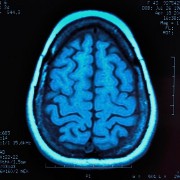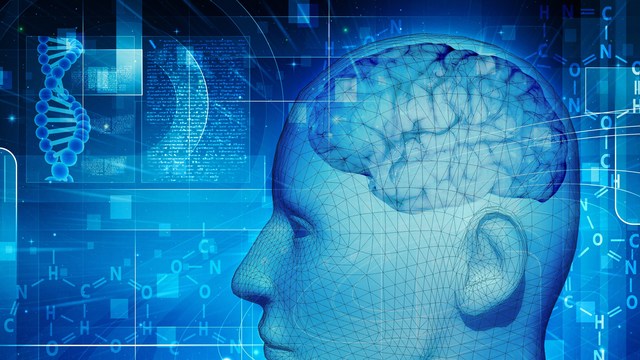 Photo: Getty Images
Photo: Getty Images
The Franklin Institute noted that every 15 seconds in the United States, someone sustains a traumatic brain injury (TBI), a type of brain injury. The brain can become damaged due to a lack of oxygen, direct penetration of an object, shaking of the brain or an infection. Patients who have sustained a brain injury can have a loss of certain functions. With TBI patients, one in every 50 people in the United States has a disability.
The effects of a brain injury depends on where in the brain the injury occurred. For example, if the brain injury damaged the language regions of the brain, the patient can have communication difficulties. The University of Alabama at Birmingham Medicine pointed out that language problems that can arise after a brain injury include aphasia, in which the patient has problems with speaking and understanding speech, and apraxia, in which the patient has problems choosing the right word when she is speaking. A brain injury that affects the language regions of the brain can also result in difficulties identifying objections, decreased vocabulary, slowed speech, and issues with writing and reading.
Some brain injury patients may have problems with movement if the motor regions of the brain become damaged. If the brain damage is severe, the patient may become paralyzed. Balance, coordination and endurance may become affected. Spasticity can occur, in which the patient experiences shortening and tightening of her muscles. A patient with motor deficits due to a brain injury may not be able to plan motor movements, according to the University of Alabama at Birmingham Medicine. Other motor problems can include muscle weakness, swallowing difficulties, tremors and delays in initiating movement.
Brain injury may also result in cognitive impairment, which includes memory, attention, problem solving, judgment and abstract thinking. A brain injury patient with cognitive impairment may experience memory problems, difficulties understanding abstract concepts, issues with problem solving and a shortened attention span. The University of Alabama at Birmingham Medicine noted that a brain injury patient with cognitive deficits may have problems carrying one- to two-step commands at the same time. Problems with judgment, confusion and a decreased awareness of oneself may also occur. In some cases, the patient may go into a coma.
Perceptual changes may occur after a brain injury. For example, a patient may have changes in her hearing, tasting, touching, vision and smelling. Vision problems that may occur include double vision or a reduced ranges of vision. Some patients may lose sensation on certain parts of their bodies, while others may experience heightened sensations. Seizures, in which the electrical activity in the brain becomes disrupted, may occur in some brain injury patients. The University of Alabama at Birmingham Medicine points out that this occurs in 2 to 5 percent of patients. A brain injury can also cause fatigue, dizziness, headaches, problems with bladder and bowel control, and changes in sleeping and eating.
Some brain injury patients may have changes in their mood or personality. This can include anxiety, irritability, apathy and depression. Disinhibition may occur, in which the patient becomes aggressive, has a decreased tolerance for frustration, and may engage in inappropriate sexual behaviors. These types of changes are more likely to occur in patients who have had changes in the chemical composition of their brains due to the brain injury, according to the University of Alabama at Birmingham Medicine.





Add a CommentComments
There are no comments yet. Be the first one and get the conversation started!